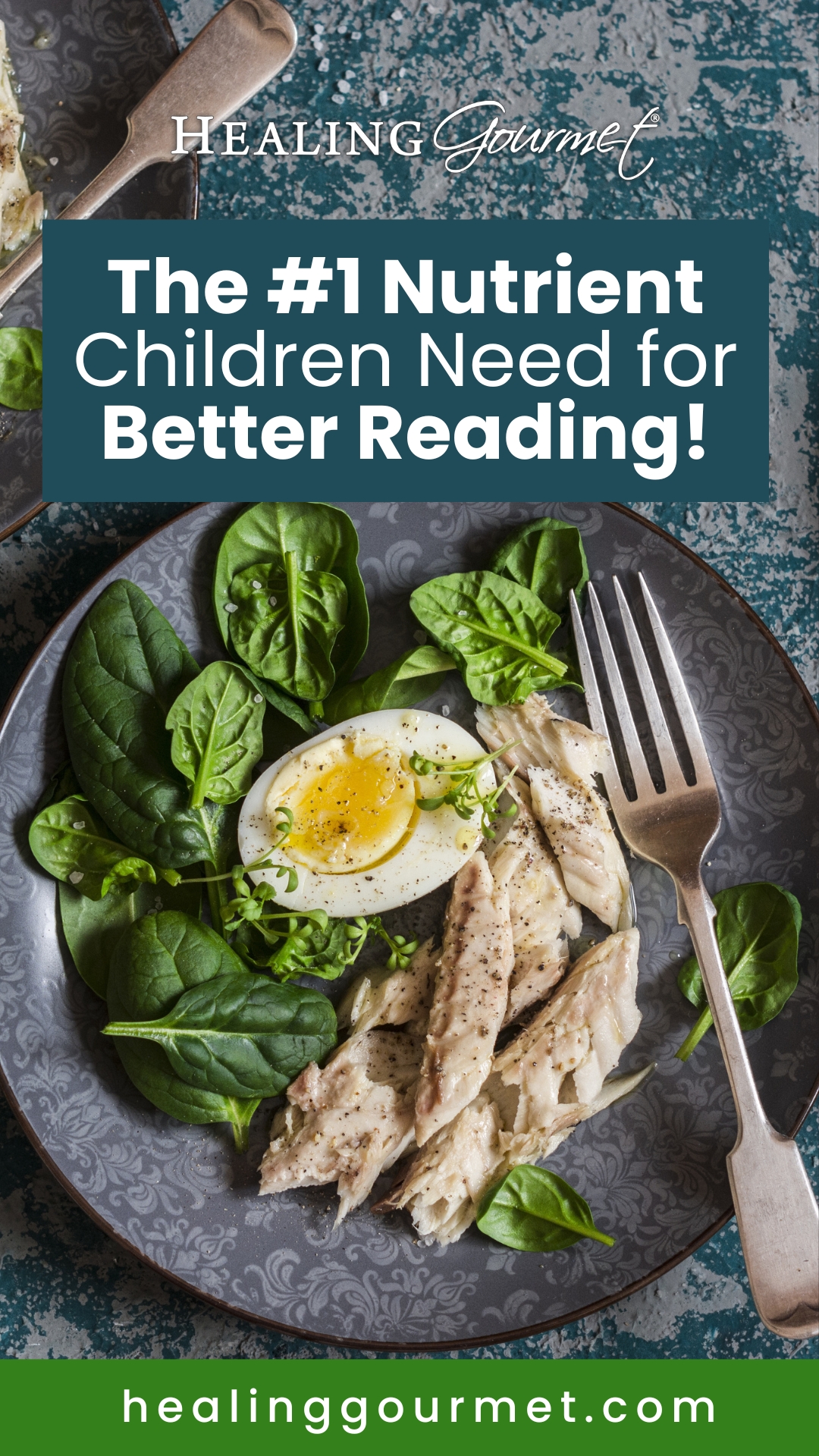The Vital Neuro-Nutrient that Can Improve a Child’s Ability to Read
Today, we talk about the critical importance of reading and the neuro-nutrient that is vital to a child’s ability to read.
It is a sad fact that one out of every four children in America grow up without learning how to read. Not only does this set them up for a lifetime of struggle, research shows that illiteracy often begins a downward spiral that increases risk of dropout and incarceration later in life.[i][ii]
Unfortunately for many children, reading doesn’t come easy – even with routine practice and adult guidance. This can leave children, their parents and teachers frustrated, and looking for answers and educational alternatives.
And while dyslexia, behavioral problems and lackluster educational programs can all impact cognitive abilities, so does our nutritional status. In fact, without the proper nutritional building blocks, we cannot create the neural connections needed for a healthy brain.
And nowhere is this more vital than the developing brain of a child!
Today, we discuss why reading is so important for a happy, healthy life… the number one nutritional deficiency standing in the way of children becoming excellent readers… plus the best foods to improve your child’s cognitive abilities.
How Reading Improves Your Brain & Enhances Your Relationships
Reading opens the door to a world of knowledge. And while the ability to read is critical to learning the subject matter in textbooks and other educational resources, the very act of reading can change your brain in a positive way.
Research published in the journal Neuroreport found that reading involves a highly complex network of circuits and signals in the brain. As your reading ability matures, those networks strengthen and become more sophisticated. This enhances your overall cognitive abilities.[iii]
Reading can also help you become more empathetic. Research published in the journal Science found that those who read literary fiction — imaginary stories based on the lives of characters — show an increased ability to understand others’ beliefs and feelings. This is called the “theory of mind” – a unique skillset that is vital for building and maintaining social relationships.
Reading at home with your child or grandchild has a number of benefits. It boosts school performance later in life… increases vocabulary… raises self-esteem and builds good communication skills. It even strengthens the brain’s “prediction engine” – a kind of biological software that creates theories about the environment and registers whether assumptions are true or not.[iv]
And while reading at home consistently is an important key to a child’s reading progress, there is an important neuro-nutrient that also greatly influences your child’s cognitive abilities…
Omega-3 Fats: The Neuro-Nutrient for Strong Readers
Omega-3 fats are known as “essential fatty acids”, because they cannot be made by the body and must be obtained from food.
And while omega-3s are found in both animal and plant foods, they are far more concentrated in animal sources. Eicosapentaenoic acid (EPA) and docosahexaenoic acid (DHA) are the two primary and most beneficial omega-3s. The greatest concentrations of EPA and DHA are found in oily, dark-fleshed fish that live in deep, cold waters such as sardines, mackerel, tuna, halibut and salmon (including roe).
Your brain is the body’s largest “consumer” of DHA, with the average adult brain containing more than 20 grams. DHA is an essential nutrient that supports electrical signaling and brain functioning, including the ability to learn and remember.[v]
DHA is also involved in the production of hormones and neurotransmitters. This is why low levels have been linked to low brain serotonin, increased risk of depression and Alzheimer’s disease.[vi][vii][viii]
Therefore, it should come as no surprise that an omega-3 deficiency can also negatively impact your child’s ability to read.
The BBC reported on a three-month study of children who were given daily fish oil supplements.[ix] The children took a reading test prior to the study and at the conclusion. The researchers discovered that the children’s “reading age” increased by a year. Their handwriting became more legible. And their attention span improved. The kids also had brain scans which revealed drastic increases in N-Acetylaspartate (NAA). This neurochemical is linked to the growth of nerve fibers.
The lead researcher of the study said:
“In three months you might expect to see a small NAA increase. But we saw as much growth as you would normally see in three years! It was as if these were the brains of children three years older.”
An Oxford study observed 493 children, aged seven to nine years old. All of the children selected had below-average reading skills, based on a national assessment. The amount of omega-3 in the children’s blood was analyzed and showed that just under two percent of the children’s fatty acids were DHA and 0.5 percent were EPA (on average). The combined total was 2.45 percent – far below the four percent minimum recommendation for heart health in adults. Eight to 12 percent is regarded as “optimal”.
At the end of the study, co-author Professor Paul Montgomery, said:
“…we found that levels of omega-3 fatty acids in the blood significantly predicted a child’s behavior and ability to learn. Higher levels of omega-3 in the blood – and DHA in particular – were associated with better reading and memory, as well as fewer behavior problems.” [x]
If your child is struggling with reading, learning or behavior issues, the conventional “treatment” is psychiatric drugs. Like all pharmaceuticals, these substances carry extremely high health risks including psychiatric symptoms, depression, aggression, cardiovascular issues, anorexia and more.[xi]
Look instead to ancestral nutrition and a diet rich in neuronutrients – including DHA – to correct the issue at its core and set your child up for a lifetime of health, not disease.
Boosting Omega-3’s in Your Child’s Diet
Omega-3 fatty acids are vital for all of us, young and old alike. But they are especially critical for children, whose brains are still developing.
To ensure that you (and your children) are getting enough omega-3, enjoy clean-sourced wild fish (and DHA-packed roe!) several times a week.[xii] We prefer smaller fish that are lower on the food chain (like sardines and mackerel) as they have much lower risk of mercury contamination. Also, consider taking a fish oil supplement in addition to enjoying eggs and animals raised on pasture, which are naturally higher in omega-3 fats than their grain-fed counterparts. Please note that high quality fish oils are molecularly distilled and therefore should be free from concerns about mercury.
While plant sources of omega-3’s are available (such as flaxseed, flaxseed oil, algae and walnuts), they are short chain fatty acids (ALA) that must be converted to EPA and DHA. Unfortunately, this is a very inefficient process in the human body, with only 5 percent being converted to brain-boosting DHA. Plant sources of omega-3 fats simply cannot provide the health benefits that animals sources do.[xiii]
Here are a few quick brain-boosting meal ideas:
- Quick Wild Salmon Burgers & Baked Sweet Potatoes
- Creamy Mackerel Salad Sandwiches on Grain-Free Bread
- Deviled Eggs topped with Wild Salmon Roe
- Wild Seafood Stew with Shrimp, Mussels & Halibut





Leave a Reply